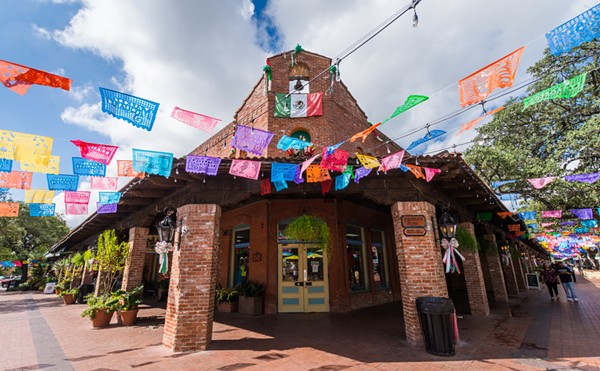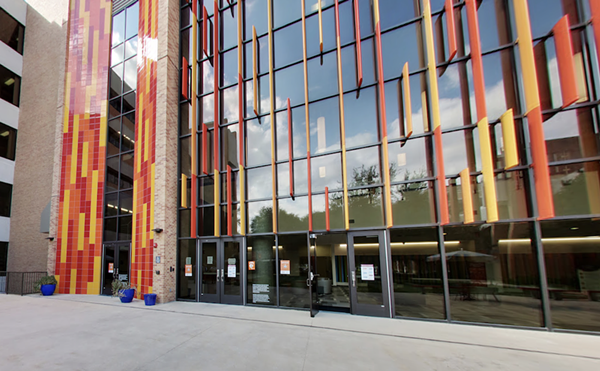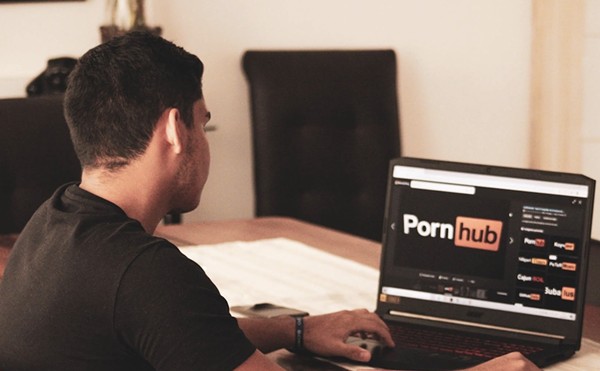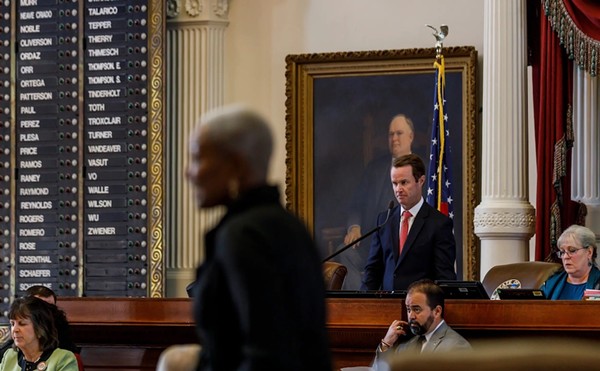Without palm grease, a political party of, by, and for the people can’t make the ballot
Why has a political party that bases its platform on such all-embracing concepts as grassroots democracy, social justice, nonviolence, and diversity had such difficulty taking root?
There’s one answer to that — in Texas, at least.
Ballot access.
Getting on the ballot here ain’t easy. Just ask any Green who spent the 75 days after the March primary elections wandering around asking Texans to sign their petitions. In all, the party gathered about 26,700 of the 45,540 signatures needed to get a third-party candidate on the gubernatorial ballot in November. They suspect that this year’s race for the state’s highest office — drawing two popular independent candidates, Carole Keeton Strayhorn and Kinky Friedman — will bring out more voters than usual. And Texas law requires that third parties (and individuals) gather signatures equaling 1 percent of the number of voters in the previous gubernatorial election. Green Party leaders fear that it’s only going to get tougher to gain ballot access.
The unfortunate truth in Texas (and many other states) is that it takes a lotta jack to get on the ballot. Strayhorn spent more than $500,000 on all the peripherals related to gathering signatures, the Austin American-Statesman says, and Friedman spent more than $50,000.
A couple weekends ago, the Green Party held its state convention at the Pearl Street Co-op in Austin, where it elected new leaders and picked delegates to attend the national convention next month in Tucson.
Doug Reber, a newly elected state co-chair, said he didn’t expect there to be too much excitement at the state convention because the party hadn’t made the ballot.
“I went into the convention with an understanding that probably there is going to be a sorry attitude about that, and it was going to be rather downbeat,” he said. “But I was quite surprised that the folks there — we addressed `ballot access` and we see that there’s a lot of things we could improve, but moreover, the great part I saw in the delegates was that they were invigorated and ready to go at it some more, and `they` want to bring about Green change to Texas.”
The party spent much of the convention refining its platform based on ideas brought forward from local Green Party chapters that meet in counties across the state. It can be a time-consuming process, says Sheri Allen-Wright, a newly elected at-large member of the party’s state executive committee.
“We have a different kind of system, which is built on always trying to come to some kind of consensus on most things,” she says. And sometimes a lack of agreement can lead to issues being tabled (such as the party’s stance on human trafficking).
As the party strives for ballot access and fights to raise the status of third parties, it continues to face an inherent struggle that pits its own values against the U.S. political structure.
The Greens don’t accept the norms of contemporary politics — taking corporate contributions, for example. Instead, the party supports government-funded elections that would help eradicate ties between politicians and big-money donors. The party’s platform also includes sections on social justice and equal opportunity, ecological sustainability, and economic sustainability.
While the platform is of, by, and for the people, the party suffers in places such as Texas, where money is the gateway to ballot access. Greens often point to Maine as an example of a state where ballot access is much easier. To run for governor there, a candidate is required to get no less than 4,000 and no more than 6,000 signatures. The state only requires a state representative to gather between 50 and 80 signatures to be on the general-election ballot. No wonder Maine happens to be the state of the Green Party’s highest-ranking elected official: State Rep. John Eder. The Greens are also dealing with growing pains. As the group continues to get bigger, its concepts of consensus and autonomy at the various levels (local, state, and national) are causing internal strife and disagreement, some say.
But, party leaders don’t like to focus on the troubles. “We’re more about what keeps us and holds us together than what’s different,” says Reber. “And we’re celebrating the differences.”
He likens the party to the nation, where each state can have its own opinion on a variety of issues. The Green Party supports a decentralized government, giving significant autonomy to lower levels of government. “I think that we don’t want to dictate universally what every single city should have to do,” he says.
Texas party members have accepted that they aren’t going to be putting a Green governor in office this year, so they’ve focused on getting Greens elected to local positions — city councils, school boards, and other local offices — to increase their exposure.
The national Green Party website lists three elected officials in Texas, including one in San Antonio. David Lanman is the mayor of Marfa, Bob Brewer is a city councilman in Alpine, and George Rice is a board member of the Edwards Aquifer Authority `see related story, page 8`.
“What we really need to do is look at local, even nonpartisan, races and just get elected to offices and start influencing our own small world,” says Allen-Wright, who’s on the state executive-committee. “We’d love to have a Green president, but realistically, we’re looking at city councils and school boards and commissioners and influencing our own local area first.”
4 Phrases On:
The Green Party
Ever notice how, when you’re abroad, you can have a reckless, two-day romance or bluff Kalashnikov-toting guerrillas blocking your embassy’s gates, and all you need are a few useful phrases (like “the iron is on, be careful” — in Dutch, “Het strijkijzer is aan, wees voorzichtig”)? Add these four phrases to your list of chat-up lines and rebel ice-breakers (consult the Babel Fish Translation website for your particular destination).
1. Did you know that New Zealand is the birthplace of the Green Party (and fellow Kiwi, Russell Crowe)?
2. By refusing contributions from corporate donors and special interest groups, the Green Party is saying the government’s not for sale (Monsanto will not be sponsoring the group’s action event against Monsanto).
3. Don’t be fooled by the color — the Greens are not just an environmental group (they take a stand on anything involving social justice, the ecology, and grassroots democracy).
4. Texas Greens say the minimum wage is not a living wage — how about $10 an hour so workers can afford to raise a family?
Angela Chambers and Keli Dailey



















